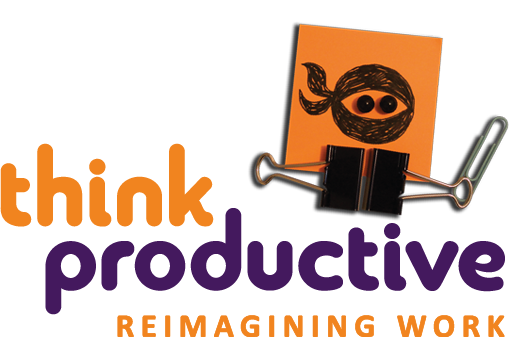New beginnings. No, we’re not talking about resolutions or blocking certain people’s numbers. We’re looking at the importance of being productive from day one of starting a new team. When a new group is created, most rush into trying to tackle many different aspects without a clear view on where they are going, or how they plan on getting there. Here at Think Productive we believe that with a new beginning; should come a new vision on what has to be done. And while you figure out what has to be done, also think how you can boost your productivity as you go along.
Much of new team conflict derives from a lack of clarity on the direction and role of the team within the company. Without a clear path, members are led only to confusion and frustration, not a productive success. To create a successful team, every member needs to be clear on the project’s aspirations and the responsibility they have in achieving them. By outlining the direction the team needs to go in, and how they can get there productively, they are much more likely to work together seamlessly to achieve the defined goals.
Defining roles and expectations
We feel it is important to make employees lives easier and part of that is to clarify what exactly their role is and what is expected from them. Everybody can get distracted and procrastinate from time-to-time. In the workplace, this is usually related to performing activities which aren’t necessarily in your job description. We’re talking consistently offering to make everybody in the office tea or the noble endeavor of changing all of the printer’s paper and cartridges. By clearly defining what a new member’s role is, the team can start off focused and not susceptible to role changing.

If you are the team leader, then this job primarily falls on you. Not only do the new members have to understand their job role, but also what you expect from them. Expectations are important in fueling them to reach beyond the edges of the role and look how they can add extra value. When keeping all of these in mind, you’ll soon be on your way to growing a team of Productivity Ninjas.
Give new members a voice
With a new team, it is important to make sure that everyone feels they can have input. By creating an open dialogue between the team members, they will feel more at ease discussing issues both large and small, with each other without the need to always be asking the team leader. This, therefore, dispels the unproductive back and forth questioning. You will also be creating a collaborative environment from day one, making sure the members know they can speak up and provide ideas can help the team a hundred times over during its lifespan. The relationship between the members and its leader should be an honest one. Being able to make the team and its leader aware when you’re stuck or behind on work, saves time and as such is more efficient.

Sharing the bigger picture
Employees can start to feel unproductive if they feel like they’re just another number, opposed to a valued member of the team. If you wish for employees to be part of the company ethos and share the same vision, then it is important that this is explained and nurtured from the beginning – no matter how small or big your team may be.
Starting a team with a shared view will allow the members to work together to achieve a goal on a company-wide level. As opposed to being narrow-minded on what individually, they’re working towards. If a team member understands how their contribution and effort affects the bigger picture, they will be more likely to add further value. Give them something to work towards, and you will find they reach for the stars.
Setting goals and milestones
Striving towards a company-wide goal is great, but what is more important is the creation of team goals and milestones which need to be achieved. These should be discussed openly and written down so every member can see what it is they should be doing. Make sure that the goals created are attainable, however. If you create too many goals with too little time to achieve them, you will be setting up your team for failure. Which wouldn’t be the best way to keep a new team motivated, now, would it?

To make sure that productivity isn’t lost, try to set both short-term and long-term goals. Don’t forget that when setting these goals; there is openness for discussion with the team. By allowing the members to have involvement in establishing ways to achieve these goals, they will feel more personally responsible for being successful in completing them. By asking the team for feedback and support, you can collaboratively find the most efficient way. Allowing you to check those goal boxes off even quicker!
Using productivity apps and software
Arguably the worst part when setting up a new team is the administration. Getting everybody organised and set up, linking accounts and managing folders. By implementing the use of productivity apps into the team from the beginning, will allow for more efficient organisation and communication going forward. Different apps can be found in all areas of the team interaction, making it easy for your new team to be instantly more productive.
If you’ve recently joined a new team, let us know what helped you be productive early on, @thinkproductive
By Miles Singleton
